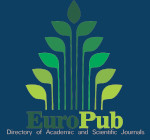The Gender-Sensitive Pedagogy: Tools for Promoting Inclusivity in the Classroom
DOI:
https://doi.org/10.48017/dj.v10i2.3210Keywords:
Innovation, Understanding Gender Sensitivity in Education, Overcoming Challenges in Implementing, Gender-Sensitive , PedagogyAbstract
In the contemporary classrooms, gender-sensitive pedagogy is a necessary approach to achieve an inclusive classroom where differences are welcomed and appreciated. This article focuses on finding the means to advance gender-sensitive approaches in pedagogy and address other courses issues such pervasiveness of gender inequalities as barriers to all students’ active participation. Teachers can combat persistent gender norms by introducing inclusive language, curriculum, and teaching strategies that promote a more holistic approach to education. This article also looks at obstacles to integrating gender sensitivity into education and offers practical ways of cultivating respect and understanding among students in order to make classrooms equitable spaces.
Metrics
References
Aksornkool, N. (2004). Gender sensitivity: A training manual for sensitizing education managers, curriculum and material developers, and media professionals to gender concerns. UNESCO.
Jabbar, A., & Barkati, M. G. (2024). Education: Ethical Concerns and Brain Drains. Ethical Frameworks in Special Education: A Guide for Researchers (Volume 2nd), 39.
JABBAR, A., & Barkati, M. G. (2024). The Integrated Teacher Education Program (ITEP): Shaping the Future of Education. International Journal of research in Educational Sciences., 7(4), 345-353.
Jabbar, S. A. (2020). TEACHING INNOVATION, RIGHT NOW: TECHNOLOGY DELIVERS A NEW EDUCATION AND TEACHING IMPERATIVE. Advance and Innovative Research, 73.
Jabbar, S. A. (2021). PHILOSOPHIES FOR EARLY CHILDHOOD CARE AND EDUCATION. Ilkogretim Online, 20(1), 7199-7203.
Johnson, K. A., & Green, K. (2019). Inclusive teaching strategies: Gender-sensitive pedagogy in practice. International Journal of Education, 18(3), 45-59.
Leowinata, W., & Frei, N. (2014). Gender mainstreaming toolkit for teachers and teacher educators. Commonwealth of Learning.
UNESCO. (2004). Gender equality through school: Providing a safe and inclusive learning environment. UNESCO.
UNESCO. (2014). Teaching and learning: Achieving quality for all. Education for All Global Monitoring Report.
Downloads
Published
How to Cite
Issue
Section
License
Copyright (c) 2025 Dr.S. ABDUL JABBAR, Mohd Gufran Barkati, Mohammad Tabish

This work is licensed under a Creative Commons Attribution 4.0 International License.
The Diversitas Journal expresses that the articles are the sole responsibility of the Authors, who are familiar with Brazilian and international legislation.
Articles are peer-reviewed and care should be taken to warn of the possible incidence of plagiarism. However, plagiarism is an indisputable action by the authors.
The violation of copyright is a crime, provided for in article 184 of the Brazilian Penal Code: “Art. 184 Violating copyright and related rights: Penalty - detention, from 3 (three) months to 1 (one) year, or fine. § 1 If the violation consists of total or partial reproduction, for the purpose of direct or indirect profit, by any means or process, of intellectual work, interpretation, performance or phonogram, without the express authorization of the author, the performer, the producer , as the case may be, or whoever represents them: Penalty - imprisonment, from 2 (two) to 4 (four) years, and a fine. ”















.png)




